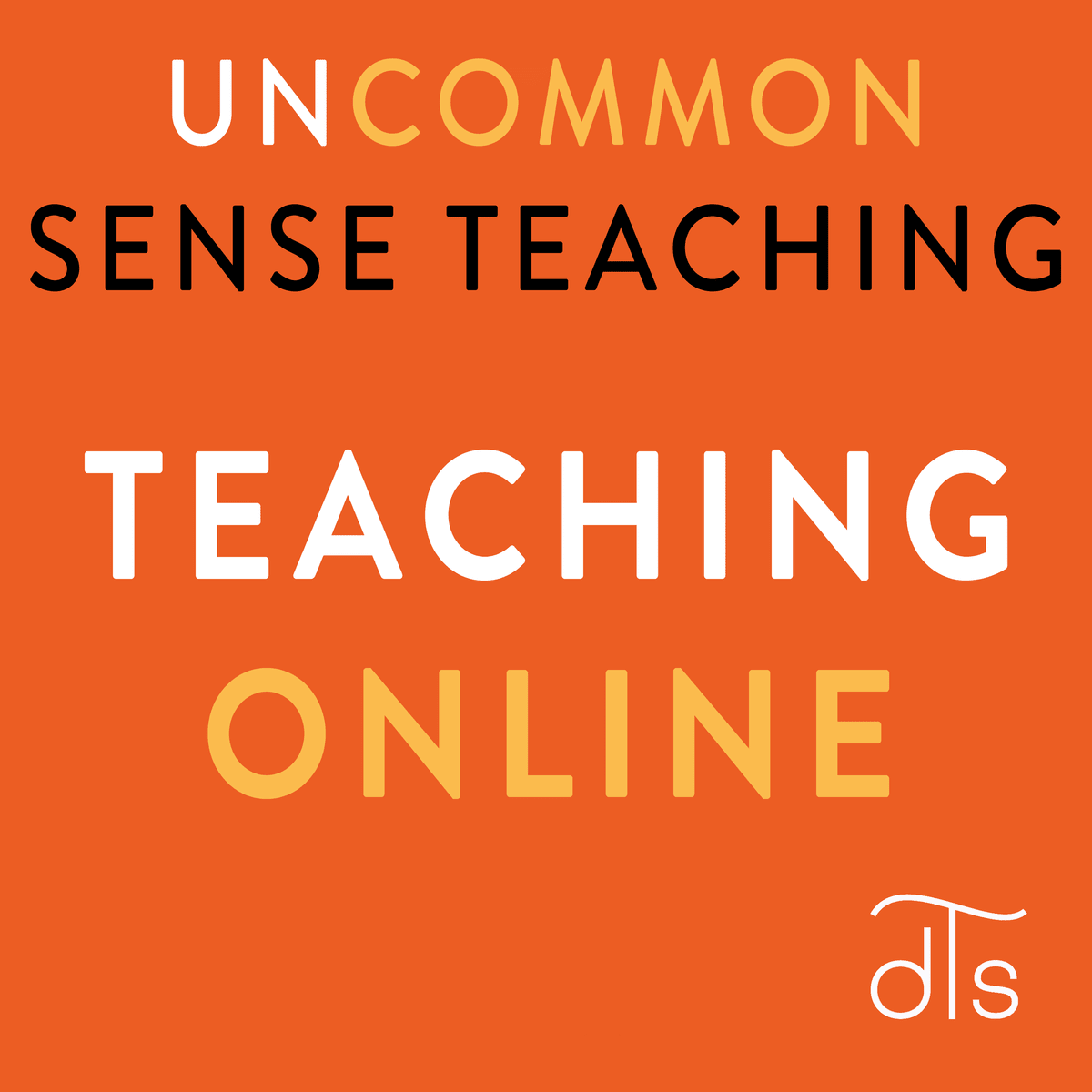Education Policy Analyst
vigating the Landscape of Learning: A Career as an Education Policy Analyst
An Education Policy Analyst plays a pivotal role in shaping the landscape of learning. These professionals delve into the intricate workings of educational systems, examining everything from curriculum effectiveness and funding allocation to teacher development and student outcomes. Their primary function is to research, analyze, and evaluate existing and proposed education policies to inform decision-making at local, state, and even national levels. This often involves scrutinizing data, understanding legal frameworks, and considering the diverse needs of students, educators, and communities.
Working as an Education Policy Analyst can be deeply engaging. It offers the opportunity to contribute to meaningful improvements in how we educate future generations. Analysts often find themselves at the forefront of critical societal discussions, exploring solutions to challenges like educational equity, access to quality learning, and the overall enhancement of educational systems. The interdisciplinary nature of the work, drawing on fields like sociology, economics, political science, and data analysis, also provides a constantly stimulating intellectual environment.
Introduction to Education Policy Analysis
Education Policy Analysts are critical thinkers and researchers who examine the structures, processes, and outcomes of educational systems. Their work is multifaceted, involving the collection and interpretation of data, the assessment of policy impacts, and the development of recommendations for improvement. They act as a bridge between research findings and actionable policy, striving to ensure that educational decisions are evidence-based and effective.
For those new to the field, understanding the breadth of this role is key. It's not just about crunching numbers; it's about understanding the human element of education and the complex interplay of various factors that influence learning environments.
Defining the Scope of Education Policy Analysis
Education policy analysis encompasses a wide array of activities aimed at understanding and improving educational systems. Analysts might investigate the effectiveness of a new teaching methodology, the impact of funding changes on school resources, or the fairness of college admissions processes. They might explore questions about how to best support students with diverse learning needs or how to ensure equitable access to educational opportunities across different communities.
The scope is broad, covering all levels of education, from early childhood programs to higher education and adult learning. Analysts may focus on specific areas like curriculum development, teacher training, school finance, or special education. The ultimate goal is to provide insights that lead to better educational experiences and outcomes for all learners.
This field requires a keen understanding of how policies are made, implemented, and evaluated. It involves not just looking at the intended consequences of a policy but also its unintended effects. For example, a policy aimed at increasing standardized test scores might inadvertently lead to a narrowing of the curriculum if not carefully designed and monitored.
Core Objectives in Education Policy
Several core objectives drive the work of education policy analysts. A primary goal is often to promote equity, ensuring that all students, regardless of their background, have access to a high-quality education and the resources they need to succeed. This involves identifying and addressing systemic barriers that may disadvantage certain student populations.
Another key objective is improving access to education at all levels. This could mean working on policies to expand early childhood education programs, make college more affordable, or provide better educational opportunities for adult learners. Analysts also focus on systemic improvement, looking for ways to make educational institutions more effective, efficient, and responsive to the needs of learners and society. This might involve research into innovative teaching practices, school leadership strategies, or the use of technology in education.
Ultimately, the work is about fostering positive change and ensuring that education systems are serving their students and communities well. It's about asking tough questions and seeking evidence-based answers to complex educational challenges.
Relationship to Broader Education Systems and Governance
Education policy analysis is intrinsically linked to the broader educational systems and governance structures. Policies are not created in a vacuum; they are shaped by political, social, and economic forces, and they are implemented within complex organizational frameworks. Education Policy Analysts must therefore understand how different levels of government (local, state, and federal) interact in shaping education.
They need to be aware of the roles played by various stakeholders, including government agencies, school boards, educational institutions, teacher unions, parent groups, and community organizations. The process of policy development and implementation often involves navigating diverse interests and perspectives. For instance, a proposed change in curriculum might be supported by some groups but opposed by others, and an analyst would need to understand these dynamics.
Furthermore, education policy is increasingly viewed in a global context. Analysts may compare policies and outcomes across different countries to identify best practices and innovative approaches. International organizations like UNESCO and the OECD also play a significant role in shaping global education agendas and providing comparative data.
Day-to-Day Responsibilities of an Education Policy Analyst
The daily work of an Education Policy Analyst is dynamic and varied, often involving a mix of research, analysis, communication, and collaboration. While specific tasks can differ based on the employer and the focus area, some core responsibilities are common across the field.
Data Collection and Analysis Methods
A significant portion of an Education Policy Analyst's time is dedicated to gathering and interpreting data. This can involve working with large-scale datasets, such as standardized test scores, graduation rates, or school funding allocations. Analysts use quantitative methods to identify trends, patterns, and disparities in educational outcomes. This might involve statistical analysis to determine the impact of a particular program or policy.
Qualitative data collection is also crucial. This can include conducting interviews with students, teachers, administrators, and parents to understand their experiences and perspectives. Focus groups, case studies, and document analysis are other common qualitative methods. The ability to synthesize information from both quantitative and qualitative sources is a key skill.
Analysts must be adept at evaluating the reliability and validity of data sources and research methodologies. They need to be critical consumers of information and able to identify potential biases or limitations in the data they are working with.
Stakeholder Engagement Processes
Education policy rarely succeeds without the input and buy-in of those it affects. Therefore, engaging with stakeholders is a critical responsibility for analysts. This involves identifying key groups and individuals who have a vested interest in a particular policy issue, such as educators, students, parents, community leaders, and policymakers.
Analysts may organize and facilitate meetings, workshops, or public forums to gather input, share information, and build consensus. Effective communication and interpersonal skills are essential for navigating potentially conflicting viewpoints and fostering productive dialogue. Building and maintaining relationships with diverse stakeholders is an ongoing process.
The goal of stakeholder engagement is to ensure that policies are well-informed, practical, and responsive to the needs of the community. It also helps to build support for policy implementation and to identify potential challenges or unintended consequences early in the process.
Policy Drafting and Evaluation Frameworks
Education Policy Analysts are often involved in the development of new policies or the revision of existing ones. This can include drafting policy briefs, reports, and recommendations based on their research and analysis. Clarity in writing and the ability to present complex information in an accessible way are paramount.
A key part of this process is conducting cost-benefit analyses of proposed policies to understand their potential financial implications and overall value. Analysts also develop frameworks for evaluating the effectiveness of policies once they are implemented. This involves defining clear goals and metrics for success, and then systematically collecting and analyzing data to assess outcomes.
Understanding policy implementation is also crucial. Analysts consider the practical challenges of putting policies into action and may develop strategies to support effective implementation. This might involve thinking about the resources, training, and support systems needed for a policy to be successful.
For those looking to delve deeper into the practical aspects of policy creation and assessment, certain online courses can provide a solid foundation.
record:29c1qs
record:30oap8
Reporting and Communication Strategies
Communicating research findings and policy recommendations effectively is a cornerstone of an Education Policy Analyst's role. This involves tailoring information to different audiences, which may include policymakers, educators, researchers, parents, and the general public. Analysts produce a variety of written materials, such as reports, briefs, articles, and presentations.
Strong presentation skills are also essential, as analysts often need to convey their findings in meetings, conferences, and public forums. They must be able to explain complex data and analyses in a clear, concise, and persuasive manner. Visual aids and data visualization techniques can be important tools for making information more accessible and impactful.
Beyond formal reports and presentations, analysts may also engage with the media or use social media to disseminate their work and contribute to public discourse on education issues. The ability to communicate effectively across multiple platforms is increasingly important in this field.
Formal Education Pathways
Embarking on a career as an Education Policy Analyst typically involves a combination of formal education and relevant experience. Understanding the educational routes can help aspiring analysts plan their academic journey effectively.
Relevant Undergraduate Majors
A bachelor's degree is generally the minimum educational requirement to enter the field of education policy analysis. Several undergraduate majors can provide a strong foundation. Degrees in Public Policy, Political Science, or Economics are common choices, as they offer insights into governmental processes, policy development, and economic principles that underpin many educational decisions.
Majors in Education Studies or specific education fields can also be highly relevant, providing a deep understanding of learning theories, curriculum development, and the practical challenges faced in educational settings. Social science disciplines such as Sociology or Psychology can offer valuable perspectives on societal factors influencing education and individual learning processes. Furthermore, a background in Statistics or Data Science is increasingly beneficial due to the data-intensive nature of policy analysis.
Regardless of the specific major, coursework in research methods, statistics, policy analysis, and education law is highly recommended. Developing strong analytical, critical thinking, and communication skills during undergraduate studies is also crucial for success in this field.
Graduate Programs and Specializations
While a bachelor's degree can open doors to entry-level positions, many Education Policy Analysts pursue graduate studies to deepen their expertise and enhance their career prospects. A master's degree is often preferred, and in some cases required, for more advanced roles.
Common graduate degrees include a Master of Public Policy (MPP), Master of Public Administration (MPA), or a Master of Arts (MA) or Master of Science (MS) in Education Policy. Some programs offer specializations within education policy, such as K-12 education, higher education, international education policy, or specific areas like curriculum and instruction or educational leadership. Specialized programs in fields like economics, statistics, or child development can also be pathways, particularly if focused on educational applications.
These advanced programs typically involve in-depth coursework in policy analysis methodologies, quantitative and qualitative research methods, program evaluation, and specific education policy issues. Many programs also include opportunities for internships or capstone projects, providing practical experience. For those looking to explore relevant graduate-level learning, online courses can offer valuable insights and skills.
record:34l2uh
record:22pdai
record:20p3is
Doctoral Research Opportunities
For individuals interested in high-level research, academic positions, or senior leadership roles in think tanks or government agencies, pursuing a doctoral degree (Ph.D. or Ed.D.) can be a valuable step. Doctoral programs in education policy, public policy, or related social science disciplines provide rigorous training in advanced research methodologies, theory development, and scholarly inquiry.
Ph.D. candidates typically conduct original research culminating in a dissertation that contributes new knowledge to the field. This deep dive into a specific area of education policy allows individuals to become experts in their chosen specialization. Research opportunities during doctoral studies can involve working on large-scale research projects, collaborating with faculty members, and presenting findings at academic conferences.
An Ed.D. (Doctor of Education) is another doctoral option, often more focused on applied research and leadership practice within educational organizations. Regardless of the specific doctoral path, these programs equip graduates with the skills to lead complex research initiatives, critically evaluate policy, and contribute to shaping the future direction of education.
Accreditation Considerations
When choosing an educational program, particularly at the graduate level, considering accreditation is important. Accreditation signifies that an institution or program has met certain quality standards established by a recognized accrediting agency. While there isn't a specific accreditation body solely for "Education Policy Analyst" programs in the same way there might be for fields like engineering or nursing, institutional accreditation of the university is a fundamental baseline.
For programs in public policy or public administration, accreditation from the Network of Schools of Public Policy, Affairs, and Administration (NASPAA) is a recognized standard in the United States. For education programs, accreditation from bodies like the Council for the Accreditation of Educator Preparation (CAEP) or regional accrediting bodies is common.
While programmatic accreditation can be a useful indicator of quality, the reputation of the faculty, the curriculum's relevance to your career goals, and the opportunities for research and practical experience are also critical factors to consider when selecting a program.
Skill Development Beyond Academia
While formal education provides a crucial foundation, success as an Education Policy Analyst also hinges on a range of practical skills developed through experience and continuous learning. These skills are often honed outside the traditional classroom setting, through internships, work experience, and professional development.
Quantitative vs. Qualitative Skill Balance
Effective education policy analysis requires a blend of both quantitative and qualitative skills. Quantitative skills involve the ability to work with numerical data, conduct statistical analyses, and interpret statistical findings. This includes understanding concepts like regression analysis, sampling methods, and data visualization. These skills are essential for analyzing large datasets related to student performance, school funding, or demographic trends.
Qualitative skills, on the other hand, focus on understanding context, perspectives, and experiences. This includes the ability to design and conduct interviews, facilitate focus groups, analyze textual data (like policy documents or interview transcripts), and synthesize complex narratives. These skills are vital for understanding the human impact of policies and for gathering nuanced insights that numbers alone may not reveal.
The most effective analysts can comfortably navigate both worlds, using quantitative data to identify broad trends and qualitative data to understand the stories and experiences behind those trends. Achieving a good balance and knowing when to apply each type of skill is a hallmark of a proficient analyst. You can explore courses that help build these analytical capabilities through platforms like OpenCourser's Data Science category.
Legislative Process Literacy
Understanding how laws and regulations are made is fundamental for an Education Policy Analyst. This "legislative process literacy" involves knowing the stages of bill development, from introduction to enactment, at the local, state, and federal levels. It also means understanding the roles of different actors in the process, such as legislators, committees, executive agencies, and interest groups.
Analysts need to be able to track legislation, understand the implications of proposed changes, and identify opportunities to influence policy development. This might involve analyzing the language of bills, preparing testimony for legislative hearings, or briefing policymakers on research findings. Knowledge of the budget process is also critical, as funding decisions are often intertwined with policy changes.
This literacy isn't just about knowing the formal rules; it's also about understanding the informal dynamics of policymaking, including political considerations and the influence of advocacy efforts. Experience working in or closely with government settings can be invaluable for developing this understanding.
Community Engagement Techniques
Education policies directly impact communities, and effective policy analysis often involves engaging with those communities. This requires a distinct set of skills beyond traditional research methods. Community engagement techniques aim to build trust, foster collaboration, and ensure that diverse voices are heard in the policy process.
This might involve organizing and facilitating community forums, conducting outreach to underrepresented groups, or partnering with community-based organizations. Skills in active listening, conflict resolution, and culturally responsive communication are essential. Analysts need to be adept at presenting information in ways that are accessible and meaningful to community members who may not have a background in policy jargon.
These books offer valuable insights into fostering inclusive and responsive educational environments, which is key for community engagement.
Successful community engagement helps to ensure that policies are relevant, equitable, and have a greater chance of being successfully implemented and sustained. It transforms policy analysis from a purely academic exercise into a collaborative effort to improve educational outcomes for all.
Software Tools for Policy Modeling
In an increasingly data-driven world, Education Policy Analysts often utilize various software tools to support their work. Statistical software packages like Stata, R, or SPSS are commonly used for quantitative data analysis, allowing analysts to manipulate large datasets, run statistical tests, and create visualizations. Proficiency in at least one of these tools can be a significant asset.
Spreadsheet software, such as Microsoft Excel or Google Sheets, is indispensable for data organization, basic analysis, and creating charts and graphs. Database management skills might also be necessary when working with very large or complex datasets. For policy modeling, which involves projecting the potential impacts of different policy scenarios, analysts might use specialized simulation software or develop models using programming languages like Python.
Beyond data analysis tools, proficiency in presentation software (like PowerPoint or Google Slides) and word processing software is essential for communicating findings. Familiarity with qualitative data analysis software (e.g., NVivo) can also be beneficial for managing and analyzing interview transcripts or other textual data. Staying current with relevant software tools is part of ongoing professional development in this field.
Career Progression and Leadership Roles
The career path for an Education Policy Analyst can be varied, offering opportunities for growth, specialization, and leadership. Understanding the potential trajectory can help individuals set realistic goals and navigate their professional development.
Entry-Level Positions
Individuals typically enter the field of education policy analysis with a bachelor's or master's degree. Common entry-level titles include Research Assistant, Junior Policy Analyst, or Policy Associate. In these roles, responsibilities often involve supporting senior analysts with data collection, literature reviews, basic data analysis, and drafting sections of reports or policy briefs.
These initial positions provide valuable on-the-job training and exposure to the practical aspects of policy work. It's a critical time for developing core analytical skills, learning about specific policy areas, and building a professional network. Entry-level analysts may work in government agencies, non-profit organizations, research institutions, or think tanks.
While the work can be demanding, it offers a direct way to contribute to important educational issues from the outset of one's career. Gaining diverse experiences, such as working on different types of projects or in different organizational settings, can be beneficial for long-term career growth.
Mid-Career Transitions to Advisory Roles
With several years of experience and a proven track record, Education Policy Analysts can transition into more senior and advisory roles. This might involve titles like Policy Analyst, Senior Policy Analyst, Program Manager, or Policy Advisor. At this stage, individuals typically take on more responsibility for designing and leading research projects, conducting complex analyses, and developing policy recommendations.
Mid-career professionals often specialize in particular policy areas, such as early childhood education, K-12 reform, higher education finance, or special education policy. They may also develop expertise in specific methodologies, like quantitative modeling or qualitative case study research. Strong communication and presentation skills become even more critical, as analysts are expected to effectively convey their findings to high-level policymakers and diverse stakeholder groups.
Networking and relationship-building are also key aspects of mid-career progression. Analysts may find themselves representing their organization at conferences, participating in policy working groups, or providing expert testimony. Some may also take on supervisory responsibilities, mentoring junior staff.
Here are some books that delve into educational leadership and effective teaching strategies, which are valuable for those moving into advisory roles.
Senior Leadership Opportunities
For experienced Education Policy Analysts with significant expertise and leadership capabilities, various senior leadership opportunities can become available. These might include roles such as Director of Policy, Chief Policy Officer, Vice President for Education Policy, or senior positions within government agencies (e.g., at the Department of Education). Some may also become Executive Directors of non-profit organizations or lead research centers at universities.
In these roles, responsibilities shift towards setting strategic direction, managing teams of analysts, overseeing large-scale research agendas, and representing the organization at the highest levels. Senior leaders play a crucial role in shaping public discourse on education, influencing major policy decisions, and securing funding for research and advocacy efforts.
A Ph.D. or extensive high-level experience is often characteristic of individuals in these positions. Strong leadership, strategic thinking, and the ability to build and maintain influential relationships are paramount. These roles offer the potential to have a significant and lasting impact on the field of education.
Alternative Paths in NGOs vs. Government
Education Policy Analysts can find fulfilling careers in both non-governmental organizations (NGOs) and government settings, each offering distinct experiences and opportunities. NGOs, including non-profits, advocacy groups, and foundations, often focus on specific issues or populations. Working in an NGO might involve conducting research to support advocacy campaigns, developing innovative programs, or working directly with communities. These roles can offer a degree of flexibility and the ability to focus intensely on passion areas.
Government positions, at the local, state, or federal level, involve working within the structures of public administration. This could mean working for a legislative body, an executive agency like the Department of Education, or a local school district. Government roles often involve direct participation in the policymaking process, from drafting legislation to overseeing program implementation and evaluation. While potentially more bureaucratic, these positions offer the chance to influence policy on a broad scale.
Think tanks and research institutions represent another common employment sector, often blurring the lines between NGO and quasi-governmental roles, especially if they receive public funding or work closely with policymakers. The choice between these paths often depends on an individual's career goals, preferred work environment, and the type of impact they wish to make. Some analysts may even move between these sectors during their careers.
The U.S. Bureau of Labor Statistics does not provide specific salary data for "Education Policy Analyst." However, Payscale reported an average salary of $61,425 per year in July 2022, with a typical range of $45,000 to $88,000. Another source, Drexel University, cites Payscale with an average of $63,336, ranging from $46,000 to $90,000. Glassdoor figures suggest a median salary around $74,376. ZipRecruiter data from 2023 indicated a national median salary of $132,350, with the lowest earners around $72,467 and highest around $183,498. These figures can vary significantly based on geographic location, years of experience, level of education, and the type of employing organization (e.g., government, non-profit, private sector).
Ethical Challenges in Education Policy Analysis
The field of education policy analysis, while aimed at improving educational systems, is not without its ethical complexities. Analysts often grapple with dilemmas that require careful consideration and a commitment to professional integrity. Understanding these challenges is crucial for anyone aspiring to work in this impactful domain.
Bias in Data Interpretation
Data is a cornerstone of education policy analysis, but data itself is not inherently objective; its interpretation can be influenced by various biases. Analysts must be vigilant about their own potential biases – conscious or unconscious – that might affect how they collect, analyze, or present findings. For example, preconceived notions about the effectiveness of certain programs or the challenges faced by particular student groups could inadvertently color their interpretations.
Moreover, the way data is collected or which data points are chosen for analysis can also introduce bias. If a survey primarily reaches a certain demographic, its findings might not be representative of the entire population. Similarly, focusing on easily measurable outcomes might lead to neglecting other important, but harder-to-quantify, aspects of education. Recognizing and mitigating these biases is a critical ethical responsibility. This requires transparency in methodology and a willingness to consider alternative explanations for observed trends.
Engaging in peer review and seeking diverse perspectives on data interpretation can also help to identify and address potential biases. Ultimately, the goal is to provide analyses that are as fair, accurate, and comprehensive as possible, even when the findings are complex or challenge existing assumptions.
Equity vs. Efficiency Tradeoffs
Education Policy Analysts frequently encounter situations where there are tensions between the goals of equity and efficiency. For instance, a policy designed to allocate resources more efficiently might inadvertently exacerbate existing inequities if it disproportionately benefits already advantaged schools or students. Conversely, policies aimed at promoting equity might sometimes be perceived as less efficient or more costly in the short term.
Navigating these tradeoffs requires careful ethical deliberation. Analysts must consider the potential impact of policy decisions on different student populations, particularly those who are historically underserved or marginalized. This involves asking critical questions about who benefits from a particular policy, who might be harmed, and whether the pursuit of efficiency justifies any potential increase in inequity.
There are rarely easy answers to these dilemmas. The ethical challenge lies in making these tradeoffs transparent, grounding decisions in evidence, and advocating for solutions that strive to maximize both equity and efficiency wherever possible. This often involves looking for innovative approaches that can achieve multiple goals simultaneously.
To explore these complex issues further, these courses offer perspectives on affirmative action and evidence-based policymaking, which often involve navigating equity and efficiency considerations.
Political Influence Management
Education policy is inherently political, and analysts often work in environments where political considerations can exert significant influence on decision-making. This can create ethical challenges, particularly when political agendas conflict with evidence-based recommendations or the pursuit of equitable outcomes.
Analysts may face pressure to tailor their findings to support a particular political stance or to downplay inconvenient truths. Maintaining objectivity and integrity in such situations can be difficult but is essential for the credibility of the profession. This involves being transparent about research methodologies and limitations, and clearly distinguishing between factual findings and policy recommendations.
Navigating political influence also requires strong communication and interpersonal skills. Analysts need to be able to build relationships with policymakers from diverse political backgrounds and to present their work in a way that is persuasive yet respectful of differing viewpoints. The ethical imperative is to ensure that policy decisions are informed by the best available evidence, even in highly politicized contexts.
Confidentiality in Sensitive Research
Education policy research often involves collecting sensitive information about students, teachers, and schools. This could include data on academic performance, disciplinary records, family income, or personal experiences. Protecting the confidentiality and privacy of individuals and institutions participating in research is a paramount ethical obligation.
Analysts must adhere to strict protocols for data collection, storage, and reporting to prevent unauthorized access or disclosure of identifiable information. This includes obtaining informed consent from research participants and ensuring that data is anonymized or de-identified whenever possible. When reporting findings, analysts must be careful to present information in a way that does not inadvertently reveal the identities of individuals or small groups.
Maintaining confidentiality is not only an ethical requirement but also crucial for building trust with research participants and ensuring the continued willingness of individuals and institutions to participate in research. Breaches of confidentiality can have serious consequences for both the individuals involved and the reputation of the research field.
Global Perspectives in Education Policy
In an increasingly interconnected world, education policy is no longer solely a domestic concern. Understanding global perspectives, international collaborations, and cross-cultural dynamics is becoming more vital for Education Policy Analysts. This global lens can offer new insights, reveal innovative practices, and highlight shared challenges across diverse educational systems.
Comparative Policy Analysis Frameworks
Comparative policy analysis involves systematically examining and contrasting education policies, practices, and outcomes across different countries or regions. This approach allows analysts to learn from the experiences of others, identify successful strategies that might be adaptable to their own contexts, and understand the factors that contribute to policy effectiveness in diverse settings. For instance, analyzing how different nations approach teacher training or curriculum development can provide valuable lessons.
Frameworks for comparative analysis help structure these investigations. They might involve comparing specific policy inputs (like funding levels or teacher qualifications), processes (like how curriculum is developed or schools are governed), and outputs/outcomes (like student achievement or graduation rates). Analysts must be mindful of contextual differences – cultural, economic, political – that can influence policy success and avoid simplistic "policy borrowing" without careful adaptation.
The goal is not to find a one-size-fits-all solution, but rather to broaden understanding and identify promising avenues for policy innovation. This requires a nuanced appreciation of how different elements of an education system interact and how policies function within specific national or local realities.
These courses provide insights into different educational contexts and innovative approaches, which are central to comparative policy analysis.
International Organizations' Roles
Several international organizations play a significant role in shaping global education policy discourse and practice. Prominent among these are UNESCO (United Nations Educational, Scientific and Cultural Organization) and the OECD (Organisation for Economic Co-operation and Development). These bodies conduct cross-national research, collect comparative data (such as the OECD's PISA assessments), and facilitate dialogue among policymakers from different countries.
UNESCO often focuses on promoting education as a human right, advancing literacy, and supporting educational development in less affluent nations. The OECD tends to concentrate on policy analysis and advice for its member countries, which are typically more economically developed, with a strong emphasis on areas like skills development, school improvement, and the economic impacts of education. The World Bank is another key player, often involved in funding educational projects and conducting research in developing countries.
For Education Policy Analysts, understanding the work, data, and recommendations of these organizations is crucial. Their reports and datasets are valuable resources for comparative analysis, and their frameworks and initiatives often influence national policy agendas.
Cultural Competency Requirements
When engaging in global education policy analysis, or even working in diverse domestic settings, cultural competency is paramount. This means understanding and respecting cultural differences in values, beliefs, communication styles, and approaches to education. Policies that are effective in one cultural context may not be appropriate or successful in another if these differences are not considered.
Cultural competency involves more than just awareness; it requires the ability to adapt research methods, communication strategies, and policy recommendations to be culturally sensitive and relevant. For example, how stakeholder engagement is conducted or how data on sensitive topics is collected might need to vary significantly across cultures. It also involves being aware of one's own cultural biases and assumptions.
Developing cultural competency is an ongoing process that involves learning, reflection, and humility. It is essential for building trust, fostering effective collaboration, and ensuring that policy analysis genuinely contributes to positive educational outcomes in diverse global and local contexts.
Decolonization Debates in Policy Design
A significant and evolving discussion in global education policy revolves around the concept of decolonization. This debate critiques the historical and ongoing influence of colonial powers and Western-centric perspectives on educational systems in many parts of the world. It calls for a re-examination of curricula, pedagogical approaches, and policy frameworks to ensure they are relevant, equitable, and empowering for indigenous and local populations.
Decolonizing education policy can involve promoting indigenous languages and knowledge systems, challenging Eurocentric biases in curriculum content, and ensuring that local communities have a greater voice in shaping their own educational futures. It questions power dynamics and advocates for more inclusive and culturally affirming approaches to learning and governance.
For Education Policy Analysts, particularly those working in international or cross-cultural contexts, understanding these debates is increasingly important. It requires a critical awareness of historical legacies, a willingness to challenge dominant paradigms, and a commitment to supporting educational systems that are truly responsive to the diverse needs and aspirations of all learners.
The following books offer critical perspectives on education, which can be relevant to understanding decolonization debates and fostering equitable policy design.
record:19g8sn
Emerging Trends Affecting Education Policy Analysts
The field of education is constantly evolving, shaped by technological advancements, societal shifts, and global events. Education Policy Analysts must stay abreast of these emerging trends to effectively address current and future challenges and opportunities in education.
AI in Predictive Policy Modeling
Artificial Intelligence (AI) is poised to transform many aspects of education, including policy analysis. One significant emerging trend is the use of AI in predictive policy modeling. This involves using AI algorithms to analyze vast amounts of educational data to identify patterns, forecast future trends, and predict the potential impacts of different policy interventions. For example, AI could help model how changes in school funding formulas might affect student outcomes in different districts or predict which students are at higher risk of dropping out.
This technology offers the potential for more nuanced, data-driven, and proactive policymaking. However, it also raises important ethical considerations, including concerns about algorithmic bias, data privacy, and the transparency of AI-driven decision-making. Education Policy Analysts will need to develop an understanding of AI capabilities and limitations, as well as the ethical frameworks needed to govern its use in education policy. Familiarity with Artificial Intelligence concepts and applications will become increasingly valuable.
Courses exploring the intersection of AI and education can help analysts understand these new tools and their implications.
Climate Change Education Integration
The growing urgency of climate change is leading to increased calls for its integration into education policy and curricula. This trend involves not only teaching students about the science of climate change but also equipping them with the knowledge, skills, and values needed to address its challenges and contribute to a more sustainable future. This can span from K-12 environmental science education to specialized programs in higher education.
Education Policy Analysts may be involved in developing policies that support the integration of climate change education across different subject areas, promoting teacher training in this area, and ensuring that schools have the resources to implement effective climate education programs. This also connects to broader discussions about the role of education in fostering civic responsibility and global citizenship.
This trend presents opportunities for analysts to work on interdisciplinary policy initiatives that connect education with environmental sustainability and community resilience. It requires an understanding of both educational principles and environmental issues.
Pandemic Response Legacy Impacts
The COVID-19 pandemic had a profound and lasting impact on education systems worldwide, accelerating some trends and creating new challenges. One significant legacy is the increased use of online and hybrid learning models. Education Policy Analysts are now grappling with questions about how to ensure the quality and equity of remote learning, address the digital divide, and support teachers and students in these evolving learning environments.
The pandemic also highlighted and often exacerbated existing educational inequities, with concerns about learning loss, particularly among disadvantaged students. Policies aimed at addressing these gaps, supporting student mental health and well-being, and strengthening the resilience of education systems are likely to remain a focus. Analysts will play a key role in evaluating the long-term impacts of pandemic-related disruptions and informing recovery efforts.
Courses focusing on resilient teaching and online learning can offer valuable strategies for navigating these ongoing challenges.
Understanding the lessons learned during the pandemic will be crucial for shaping more robust and equitable education policies moving forward.
Privatization Debates in Public Education
The role of private actors and market-based mechanisms in public education continues to be a subject of ongoing debate and policy focus in many countries. This includes discussions around charter schools, school voucher programs, private tutoring services, and the involvement of for-profit companies in providing educational resources and services.
Proponents of privatization often argue that it can increase choice, foster innovation, and improve efficiency. Critics, however, raise concerns about potential impacts on equity, accountability, the public mission of education, and the potential for profit motives to overshadow educational goals. These debates often touch on fundamental questions about the purpose of public education and the role of the state versus the market.
Education Policy Analysts are frequently involved in researching and evaluating the impacts of various privatization initiatives. This requires a nuanced understanding of complex market dynamics, funding mechanisms, and the potential benefits and drawbacks for different student populations and communities. The ability to navigate these often ideologically charged debates with objective, evidence-based analysis is critical.
Exploring literature on these topics can provide deeper context for analysts.
record:19g8sn
record:14g9uh
Frequently Asked Questions
Navigating a potential career path can bring up many questions. Here are answers to some common inquiries about becoming an Education Policy Analyst, particularly for those considering a career transition or new to the field.
Can I enter this field without an education degree?
Yes, it is certainly possible to enter the field of education policy analysis without a specific degree in education. Many successful analysts come from diverse academic backgrounds such as public policy, political science, economics, sociology, law, or statistics. What employers often value most are strong analytical, research, and communication skills, along with a demonstrated interest in and understanding of education issues.
Relevant experience, such as internships or work in government, non-profits, or research settings, can also be highly beneficial, regardless of your undergraduate major. If you lack a formal education background, gaining practical experience in education-related roles or pursuing a graduate certificate or degree in education policy or a related field can strengthen your candidacy. The key is to demonstrate your ability to think critically about educational challenges and contribute meaningfully to policy discussions.
For those from other fields, it’s encouraging to know that the skills you've cultivated – perhaps in data analysis from a finance role, or research methodologies from a science background – are often transferable and highly valued. The journey might involve some focused learning to understand the specific contexts of education, but your unique perspective can be an asset.
How political is this career path?
Education policy is inherently intertwined with political processes and priorities. Policies are often shaped by political ideologies, debated in legislative arenas, and influenced by various interest groups. Therefore, a career as an Education Policy Analyst will almost invariably involve navigating political landscapes.
The degree of direct political involvement can vary depending on the specific role and employer. Analysts working directly for elected officials, political campaigns, or overtly partisan think tanks will likely experience a more intensely political environment. Those working in more research-oriented academic institutions or non-partisan non-profits might have more distance from direct partisan politics, but their work will still inform and be influenced by the political discourse surrounding education.
It's a reality of the field that can be both challenging and stimulating. For those drawn to making a tangible difference in areas they care about, understanding and engaging with these dynamics is part of the process. The ability to remain objective in research and analysis while also understanding the political context is a valuable skill.
What industries beyond government employ analysts?
While government agencies at the local, state, and federal levels are significant employers of Education Policy Analysts, numerous opportunities exist beyond the public sector. Non-profit organizations and foundations play a crucial role in education research, advocacy, and program implementation, and they frequently hire policy analysts.
Think tanks and research institutions, both independent and university-affiliated, are also major employers, conducting in-depth studies on a wide range of education issues. Additionally, educational institutions themselves, such as school districts, colleges, and universities, may employ analysts to inform their own policies and practices. Private sector opportunities can be found with consulting firms that advise educational organizations or with companies that develop educational products and services, though these may sometimes blend policy analysis with market research or business development.
This diversity of employers means that aspiring analysts can often find roles that align with their specific interests and career goals, whether they are passionate about grassroots advocacy, academic research, or direct institutional improvement.
Is fieldwork experience essential?
While not always a strict requirement for every Education Policy Analyst role, fieldwork experience – such as time spent working directly in schools, educational programs, or communities – can be incredibly valuable. Firsthand experience provides a deeper understanding of the practical realities, challenges, and nuances of the education system that data alone cannot always capture. It can inform more relevant research questions and more grounded policy recommendations.
For example, experience as a teacher, school administrator, or community liaison can offer invaluable insights into how policies are implemented on the ground and how they affect students and educators directly. This "boots-on-the-ground" perspective can enhance an analyst's credibility and ability to connect with diverse stakeholders.
If you are transitioning from a different career, don't be discouraged if direct K-12 teaching experience isn't on your resume. Volunteer work, internships in educational settings, or even informational interviews with educators can provide meaningful exposure. The emphasis is on understanding the context in which policies operate, and there are many ways to gain that understanding.
How does this role differ from urban policy analysis?
While there can be overlap, particularly in urban settings, Education Policy Analysis and Urban Policy Analysis are distinct fields with different primary focuses. Education Policy Analysts concentrate specifically on issues related to educational systems, such as curriculum, teaching, school finance, student achievement, and educational equity. Their lens is primarily on how policies impact learning and educational institutions.
Urban Policy Analysts, on the other hand, typically have a broader scope, addressing a wide range of issues pertinent to urban areas, which might include housing, transportation, economic development, public safety, and environmental concerns, in addition to education. While an urban policy analyst might examine how school quality affects neighborhood development, their primary focus isn't usually the internal workings of the education system itself in the same depth as an education specialist.
However, in practice, these fields can intersect. For example, an Education Policy Analyst might study the challenges of urban school districts, while an Urban Policy Analyst might consider the role of schools in community revitalization. Some analysts may even specialize in areas like "urban education policy," blending perspectives from both fields. The Urban Planning section on OpenCourser might offer related insights for those interested in this intersection.
What are common exit opportunities?
A career as an Education Policy Analyst can open doors to a variety of other roles and sectors over time. The analytical, research, communication, and project management skills developed are highly transferable. Common exit opportunities can include moving into more senior leadership positions within the same types of organizations (government, non-profits, think tanks), such as becoming a director or executive.
Some analysts transition into direct educational administration roles within school districts or higher education institutions. Others may move into advocacy or lobbying roles, working to influence policy from a different angle. Consulting, either independently or with a firm, is another path, allowing analysts to apply their expertise to a range of clients and projects.
For those with advanced degrees, academia – teaching and conducting research at a university – is a possibility. The skills are also valued in related fields such as public health policy, social policy, or international development, particularly if one's work has had an interdisciplinary focus. The path is often not linear, and the experiences gained as an analyst provide a strong foundation for diverse future endeavors.
Useful Links and Resources
To further your exploration of a career as an Education Policy Analyst, the following resources may be helpful:
-
Professional Associations:
- Association for Public Policy Analysis and Management (APPAM): A leading organization for public policy researchers, practitioners, and students. While not solely focused on education, it's highly relevant.
- American Educational Research Association (AERA): A prominent international professional organization with the primary goal of advancing educational research and its practical application.
-
Government and Intergovernmental Organizations:
- U.S. Department of Education: The primary federal agency for education policy and research in the United States.
- National Center for Education Statistics (NCES): The primary federal entity for collecting and analyzing data related to education in the U.S. and other nations.
- OECD Directorate for Education and Skills: Provides internationally comparative data, research, and policy analysis on education.
- UNESCO Education Sector: Leads global efforts to ensure quality education and lifelong learning for all.
-
Think Tanks and Research Organizations (Examples):
- Brown Center on Education Policy at Brookings Institution: Conducts research and analysis on a wide range of education policy issues.
- Learning Policy Institute: Conducts and communicates independent, high-quality research to improve education policy and practice.
- RAND Corporation (Education & Labor): A nonprofit institution that helps improve policy and decisionmaking through research and analysis.
- Center for American Progress (Education Policy): Develops and advocates for progressive education policies.
-
OpenCourser Resources:
- Explore Education courses on OpenCourser to find relevant online learning opportunities.
- Browse the Public Policy category for courses related to policy analysis and development.
- Visit the OpenCourser Learner's Guide for tips on how to make the most of online learning for career development.
Embarking on a career as an Education Policy Analyst is a commitment to understanding and improving the systems that shape learning and opportunity. It is a field that demands rigorous analysis, thoughtful engagement, and a dedication to fostering positive change. While the path may have its challenges, the potential to contribute to a more equitable and effective educational future for all is a profound and rewarding endeavor.

















